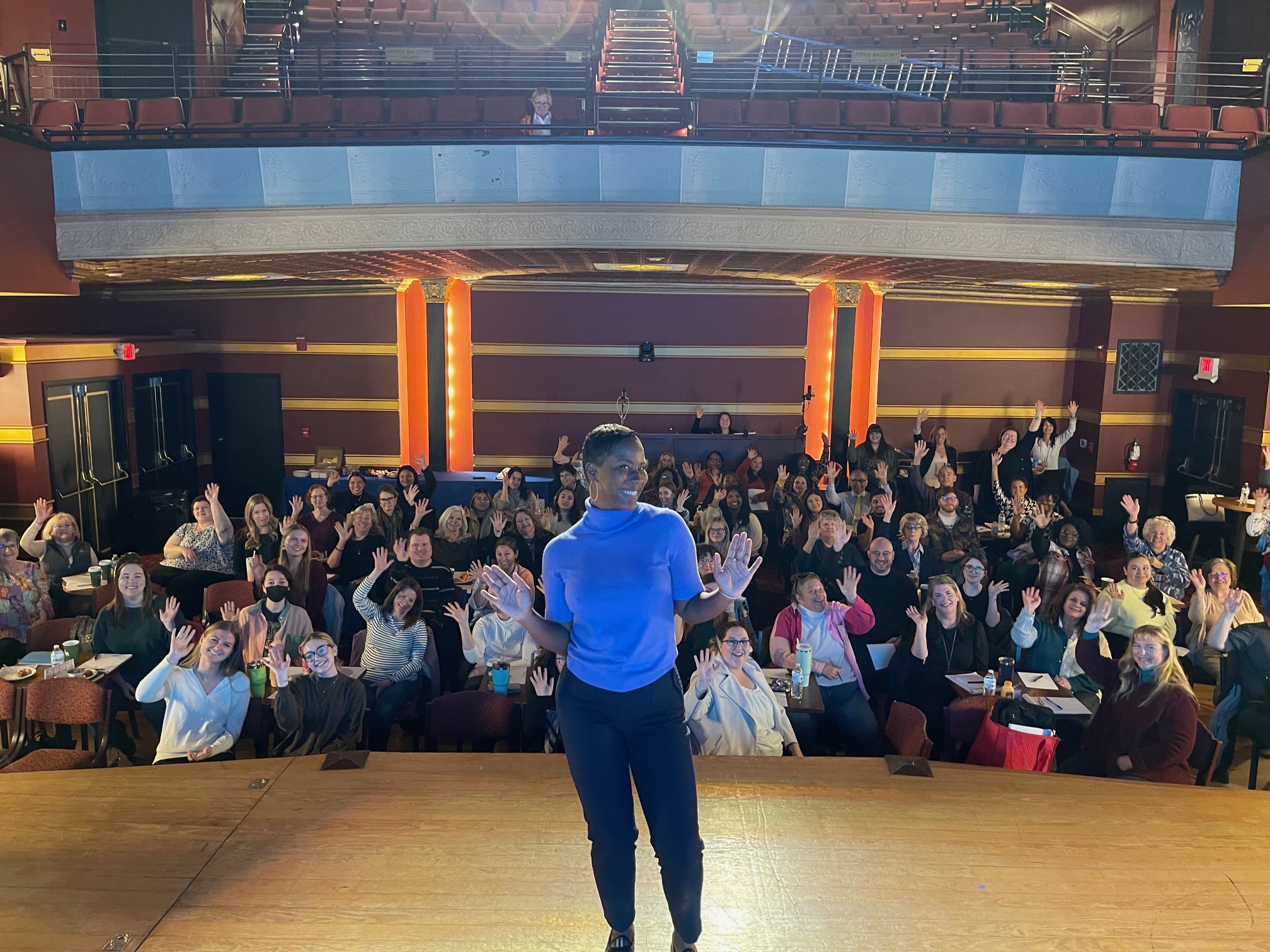In the News

Dr. Mariel Buqué Enlightens Community About Intergenerational Trauma
For All Seasons recently hosted a free community lecture at Chesapeake College by internationally acclaimed author Dr. Mariel Buqué, a first-generation Black Dominican psychologist and trailblazer in addressing intergenerational trauma, particularly within communities of color. Dr. Buqué has written “Break the Cycle: A Guide to Healing Intergenerational Trauma,” a comprehensive resource offering practical tools for transforming intergenerational pain into healing and abundance. For All Seasons is the trauma center for the Eastern Shore. One hundred percent of the agency’s service providers are trauma-certified. For All Seasons prioritizes the support and education of the community when it comes to topics around trauma.
Intergenerational trauma is the transmission of trauma or its legacy, in the form of psychological pain from the generation experiencing the trauma to subsequent generations. Intergenerational trauma can be passed down from ancestors who may have suffered from unhealthy family dynamics, experienced adverse childhood experiences growing up, or survived historical disasters or traumas. This may include personal trauma, such as child or domestic abuse, trauma experienced by a specific cultural, racial, or ethnic group, as well as trauma from major events like wars, slavery, the Holocaust, and colonial violence against Native Americans. This multilevel emotional injury from intergenerational trauma can impact the mind, body, and spirit, leaving the next generation susceptible to anxiety, depression, hypervigilance, and other emotional and mental health concerns.
“Intergenerational trauma is the only type of trauma that actually transcends down the family line, and it happens at the intersection of our biology and our psychology. Through our biology, we actually inherit specific gene markers from both of our parents that had they been in states of trauma themselves had they actually endured any elements of stress that was chronic, it could have actually shown up in their genetic encoding and we would have actually inherited some of those genetic markers that could have made us predisposed to stress and trauma,” said Dr. Buqué.
“I’m going to be talking about much of why this trauma tends to come up as psychological and cultural wounds that tend to be pretty relentless in our communities . . . What happens when trauma enters the picture is that that very trauma gets recycled in our family homes, leaving rage and fury as an immovable mark that stays in the hearts of everyone who is impacted and their descendants. And it doesn’t let go away. Instead, it metastasizes, and it develops into emotional tumors, and it actually disintegrates many individuals’ capacity to cope and even zest for life.”
Dr. Buqué further explained that with the global mental health crisis during COVID and the suicide crisis that we are experiencing, we can connect back to some experience related to trauma. She went on to share that trauma erodes our hope, which is a critical emotion that we need to sustain to feel like life is worth experiencing like another day, is worth looking forward to, and to strive for life and not death. Although intergenerational trauma has been present in our families and communities, we have not had the language and the tools to work through this very layered and complex emotional experience.
“When it comes to healing generational trauma, we have to work through the mind and instill within the mind a sense of hope. We have to help people to restructure their thinking from that pessimistic, negativistic view into one that is actually more than lost and invites in the possibilities that there could also be good things that can happen in life,” Dr. Buqué shared.
“We do the same thing when it comes to the body. In the body, we have to extract the ways that trauma has been planted in the body. We do that with deep breathing. We do that with meditation. We do that with stretches . . . We start a cycle that is marked by health. We start a cycle that’s marked by connection and all of that happens again and again. And when it’s recycled generation after generation, it starts breeding hope in a community. And that’s the message that I really want to relay for us today, that there is so much in the mind, body, spirit, and even in our cultures that we can focus on that can actually instill hope in people that have been suffering for decades,” she added.
Dr. Buqué further explained that it takes as little as 12 weeks for there to be a cementing of that experience, for our brains to really start in their very neuroplastic ways, to start forming stronger connections toward health.
While on the Eastern Shore Dr. Buqué trained For All Seasons staff about intergenerational trauma.
“For All Seasons is not only committed to sharing the information with the community but also, and most importantly, committed to ensuring that our staff is culturally competent to address the needs of the community. Having Dr. Buqué spend the day with our staff has helped our team understand intergenerational trauma from a clinical and supportive lens, strengthening our safety net for many community members who live with intergenerational trauma,” commented Beth Anne Dorman, President & CEO of For All Seasons.
For All Seasons provides the highest quality mental health and victim services to children, adults, and families across the Mid-Shore and throughout the state of Maryland. Services are offered in both English and Spanish and include therapy, psychiatry, victim advocacy, 24-hour crisis hotlines, outreach, and community education. For information about For All Seasons walk-in hours, contact For All Seasons at 410-822-1018 or visit ForAllSeasonsInc.org.
Caption: Dr. Mariel Buqué enlightens the community about intergenerational trauma at For All Seasons community lecture.
Listen to Dr. Buqué’s Presentation at Chesapeake College:
